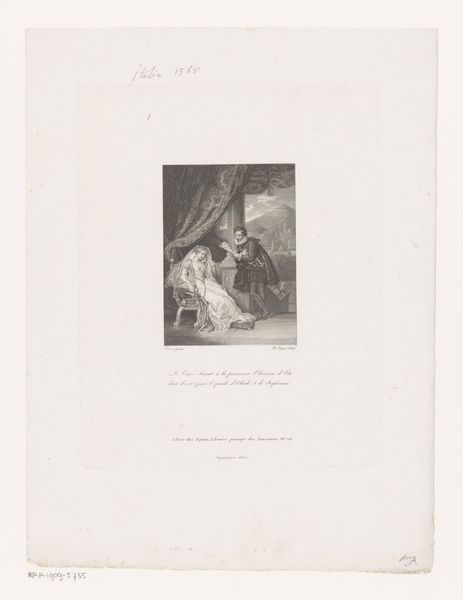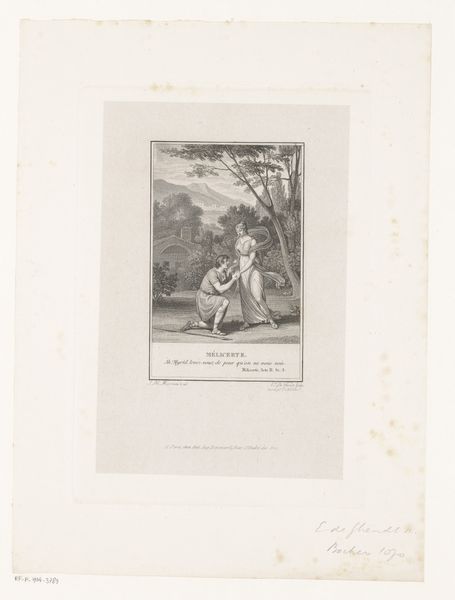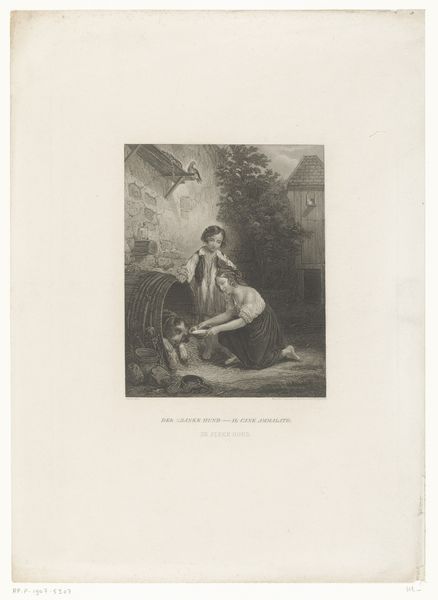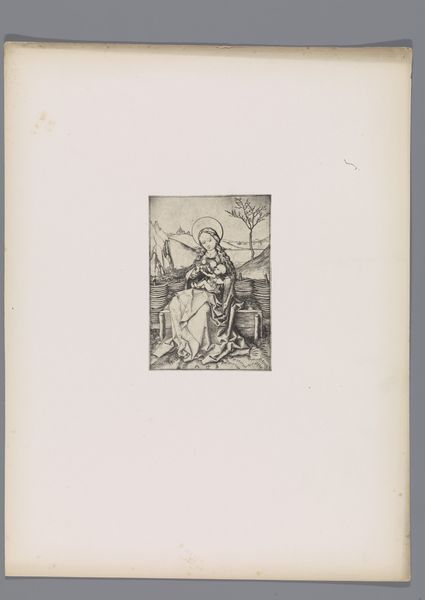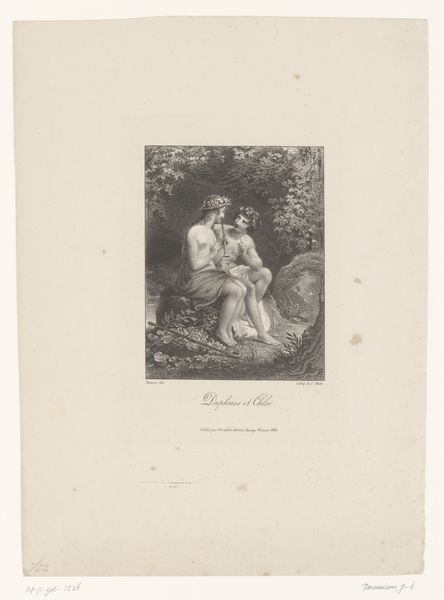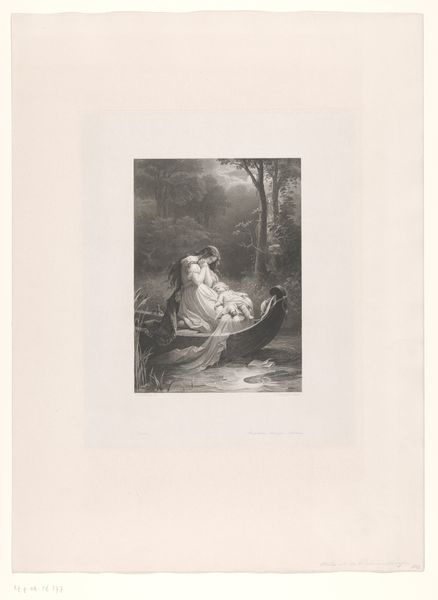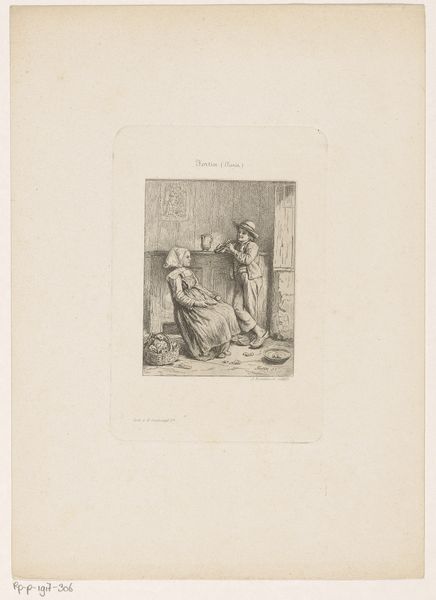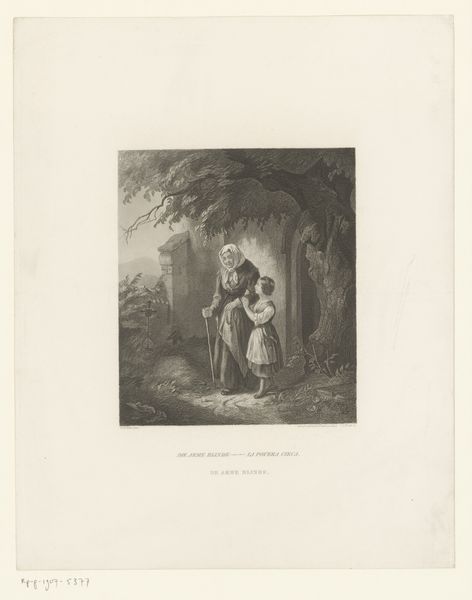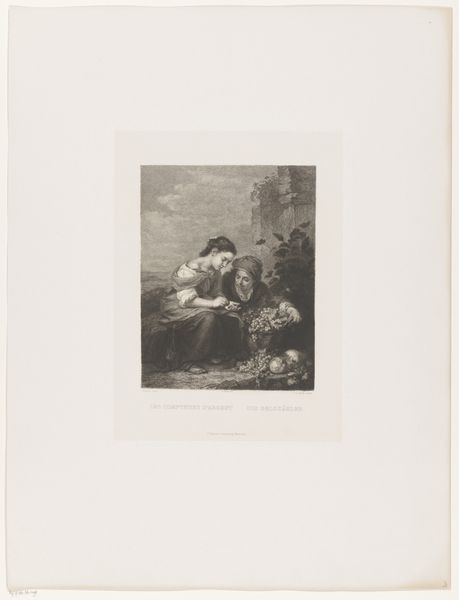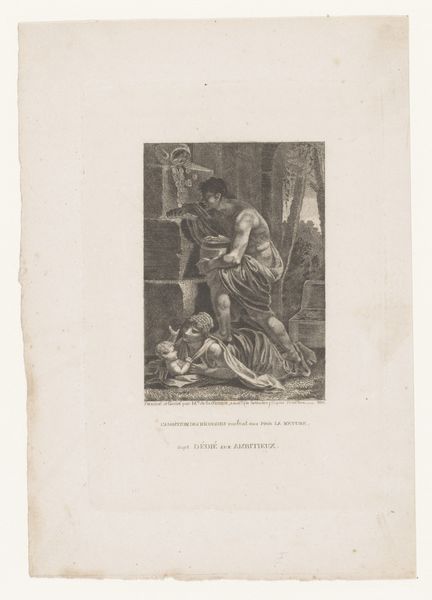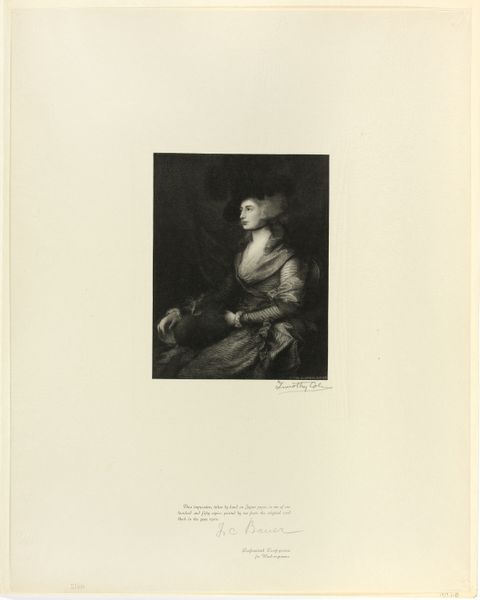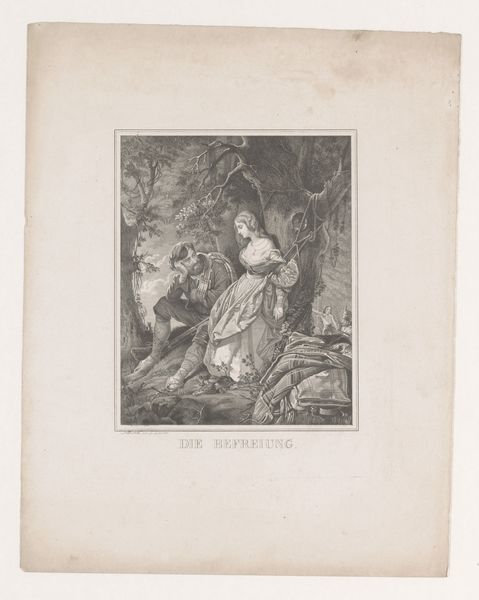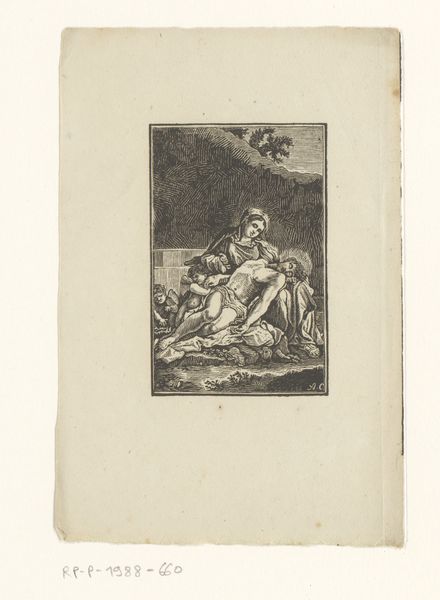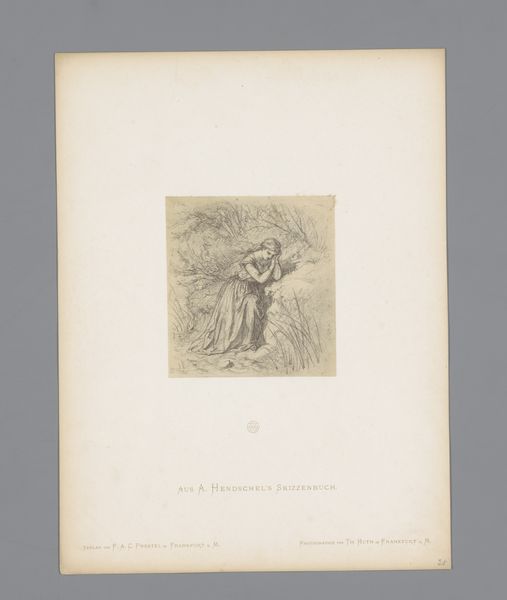
print, engraving
#
aged paper
#
light pencil work
# print
#
old engraving style
#
landscape
#
figuration
#
romanticism
#
genre-painting
#
history-painting
#
engraving
Dimensions: height 247 mm, width 165 mm
Copyright: Rijks Museum: Open Domain
Curator: Here we have "Daphnis and Chloe," an engraving by Jean Pierre Larcher, likely created between 1814 and 1843. What strikes you initially about it? Editor: It's remarkably gentle. The figures seem to almost melt into the landscape, a soft blend of light and shadow created with fine lines. There’s a kind of hazy, dreamlike quality. Curator: The hazy effect definitely connects to Romanticism, where nature reflects deep emotions and an idealized past. "Daphnis and Chloe" is a popular subject that tells a tale of innocence and rediscovery of love within a natural, Arcadian setting. It echoes back to pastoral themes and symbolic rebirth. Editor: I see that, yes. Chloe holds what appears to be a flute. The way their bodies are positioned suggests not so much overt eroticism, but tenderness and mutual vulnerability. The line work, although precise, lends itself to a depiction of subtle interactions, like glances or a shared secret. Curator: Precisely. The flute often acts as a symbol for the pastoral world, for artistic inspiration and harmony. Their posture—the almost mirrored, gentle embrace—can be seen as visual harmony representing unity and love's gentle strength, a world unspoiled by modernity. What we recognize in their embrace transcends time. Editor: Given the print medium, do you think that Larcher was aiming for wider accessibility? Its delicate character seems paradoxical with the means of production as print. Curator: That is perceptive of you. The beauty of engravings resides in their replicability. Disseminating ideas and aesthetics more broadly aligns perfectly with the ideals of Romanticism, spreading the myth of a return to an untainted and more empathetic human experience. Editor: Seeing it through the lens of accessible Romanticism casts new light. Thank you for providing the context, it enhanced my understanding. Curator: It’s been a pleasure exchanging insights and connecting with the artwork.
Comments
No comments
Be the first to comment and join the conversation on the ultimate creative platform.
